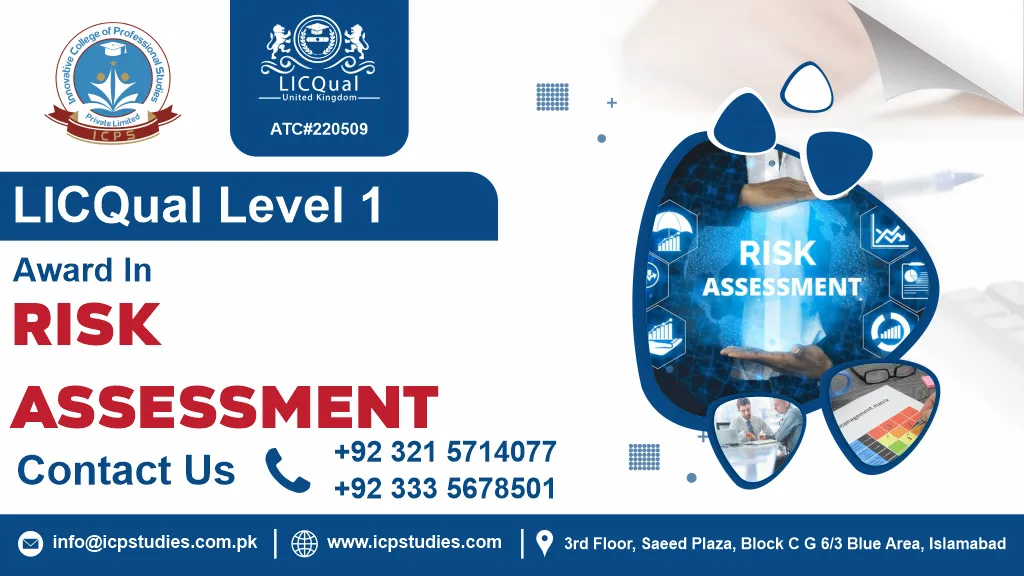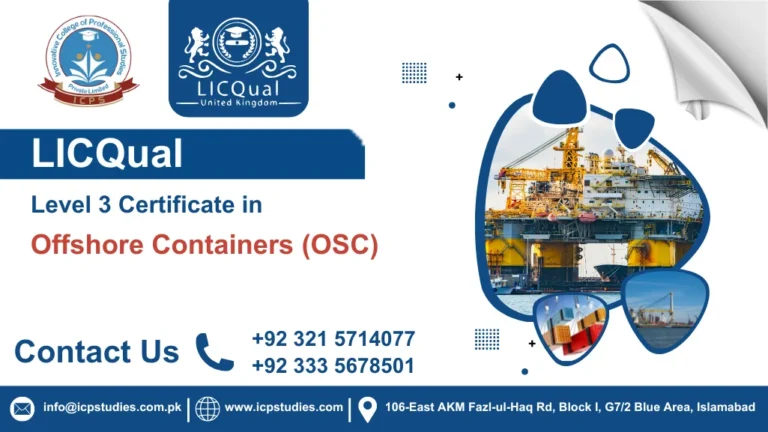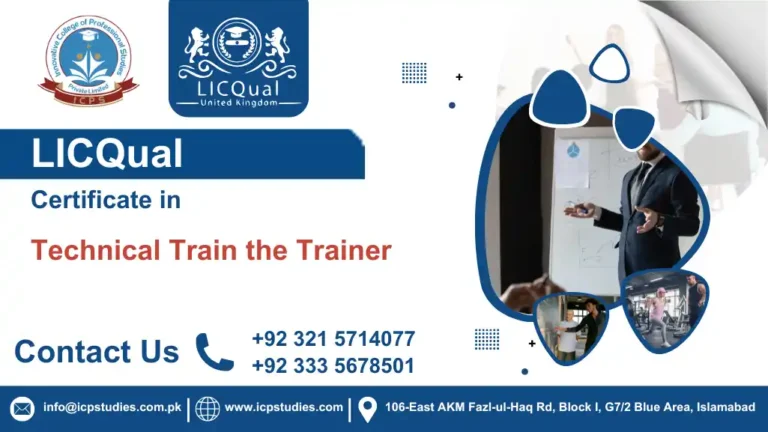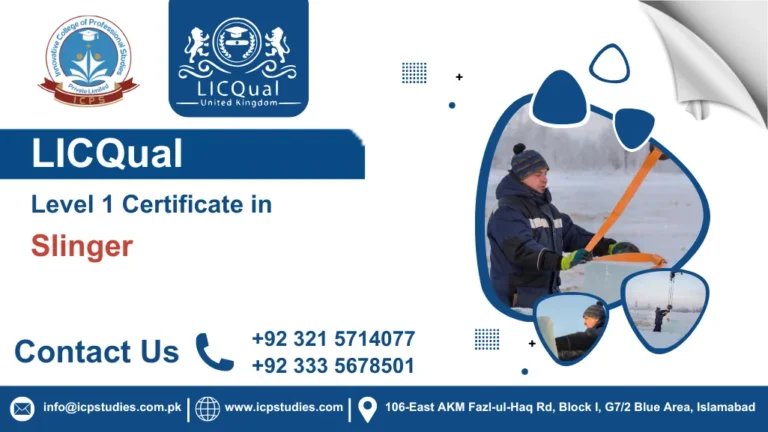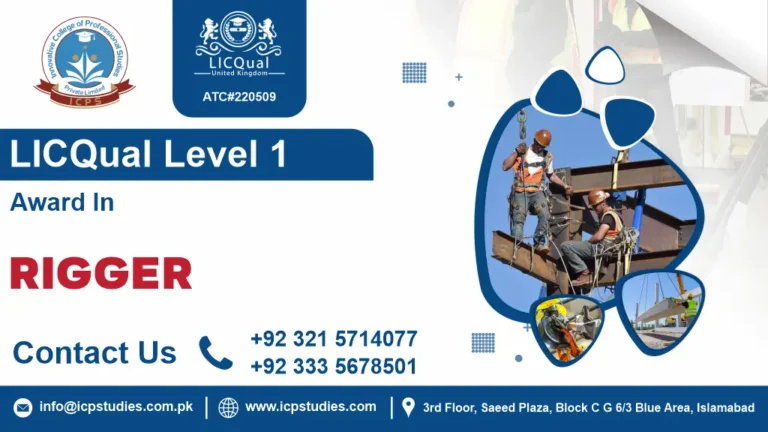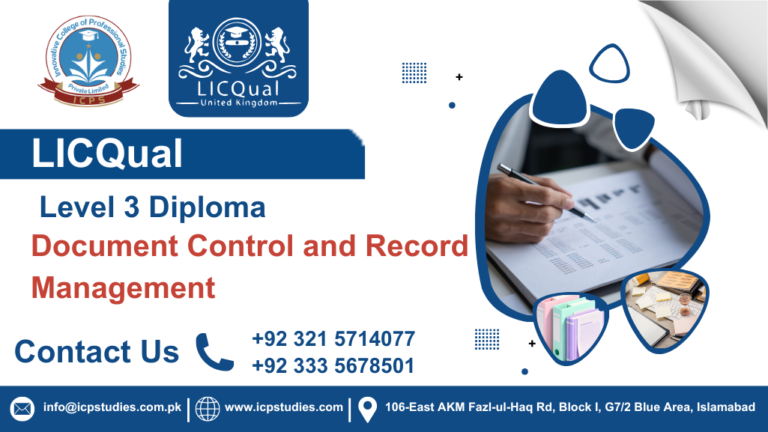Our award program provides you with a solid foundation in risk assessment principles and practices. You’ll learn how to identify, assess, and control risks effectively, laying the groundwork for safer environments and better decision-making.
The LICQual Level 1 Award in Risk Assessment is internationally recognized, giving you credibility and a competitive edge in the job market. Whether you’re seeking new career opportunities or aiming for advancement in your current role, this certification sets you apart as a competent and knowledgeable professional.
We understand that everyone’s schedule is different. That’s why our award program offers flexible learning options, including online courses and in-person workshops, allowing you to learn at your own pace and convenience.
Quality education shouldn’t break the bank. Our award program is affordable and accessible, making it easier for individuals and organizations to invest in their skills and safety.
Don’t wait until it’s too late.. Enroll now in the LICQual Level 1 Award in Risk Assessment today and take the first step toward creating safer environments and reducing risks. Whether you’re a seasoned professional or just starting your journey, this award program equips you with the knowledge and skills you need to succeed.
All About Level 1 Award in Risk Assessment
Course Overview
The LICQual Level 1 Award in Risk Assessment is a comprehensive training program designed to provide individuals with foundational knowledge and practical skills in identifying, assessing, and managing risks effectively. This award course aims to equip participants with the essential tools and techniques needed to conduct risk assessments in various environments, ensuring safety and compliance with regulations.
Participants will gain a solid understanding of the principles and concepts underlying risk assessment, including hazard identification, risk analysis, and risk management strategies.
The course covers relevant legal requirements and regulations pertaining to risk assessment, particularly in the context of workplace safety and health. Participants will learn about their responsibilities and obligations under relevant legislation.
Effective communication and documentation are essential components of risk assessment. Participants will learn how to communicate risk findings clearly and concisely and how to document assessment processes and outcomes.
Strategies for controlling and mitigating risks will be explored, including preventive measures, corrective actions, and risk reduction strategies. Participants will learn how to develop and implement risk control measures to minimize the likelihood and impact of adverse events.
The LICQual Level 1 Award in Risk Assessment provides a valuable opportunity for individuals to acquire essential skills and knowledge in risk assessment. By enrolling in this course, participants can enhance safety, ensure compliance, and contribute to the overall well-being of their organizations and communities.
Study Units
Learning Outcomes
Here are the expected outcomes for each of the study units:
Principles of Risk Assessment
- Understand the fundamental principles and concepts of risk assessment.
- Identify different types of hazards and their associated risks.
- Learn how to assess risks using qualitative and quantitative methods.
- Apply risk assessment techniques to real-world scenarios.
Legal and Regulatory Frameworks
- Gain knowledge of relevant laws, regulations, and standards related to risk assessment.
- Understand the legal obligations and responsibilities of individuals and organizations regarding risk management.
- Learn how to interpret and apply legal requirements in the context of risk assessment practices.
- Develop strategies for ensuring compliance with applicable regulations.
Risk Assessment Methodologies
- Explore various risk assessment methodologies, including HAZOP, FMEA, and fault tree analysis.
- Understand the strengths and limitations of different risk assessment techniques.
- Learn how to select and apply the most appropriate methodology based on the nature of the hazard and the context of the assessment.
- Gain practical experience in conducting risk assessments using different methodologies.
Practical Application
- Apply theoretical knowledge and skills gained in previous units to real-world scenarios.
- Conduct risk assessments in simulated environments or actual workplaces.
- Develop risk assessment reports and recommendations based on assessment findings.
- Collaborate with peers to analyze and evaluate risk scenarios and propose appropriate risk control measures.
Communication and Documentation
- Learn effective communication techniques for conveying risk assessment findings to stakeholders.
- Develop clear and concise risk assessment reports, including risk matrices, risk registers, and mitigation plans.
- Understand the importance of documentation in risk assessment and management processes.
- Enhance skills in written and verbal communication to ensure understanding and buy-in from relevant parties.
Risk Control and Mitigation Strategies
- Identify potential risk control measures and mitigation strategies based on risk assessment findings.
- Learn how to prioritize and implement risk control measures effectively.
- Develop contingency plans and emergency response procedures to address identified risks.
- Monitor and review the effectiveness of risk control measures and adjust strategies as necessary.
Continuous Improvement
- Understand the importance of continuous improvement in risk assessment practices.
- Learn how to conduct post-assessment evaluations to identify lessons learned and areas for improvement.
- Implement feedback mechanisms to gather input from stakeholders and improve risk assessment processes.
- Develop strategies for ongoing monitoring, review, and refinement of risk management practices.
By completing these study units, participants will develop a comprehensive understanding of risk assessment principles, methodologies, and best practices. They will also gain practical experience in applying risk assessment techniques to real-world scenarios and learn how to communicate findings effectively to stakeholders. Ultimately, participants will be equipped with the knowledge and skills needed to identify, assess, and manage risks in various contexts, contributing to safer and more resilient organizations and communities.
Admission Criteria
The entry requirements for the LICQual Level 1 Award in Risk Assessment typically include the following:
- Educational Background:
- There are generally no strict educational prerequisites for enrolling in this course. However, a basic level of literacy and numeracy may be required to comprehend course materials and participate effectively in assessments.
- Work Experience:
- While not always mandatory, some institutions or training providers may prefer candidates with relevant work experience in roles related to health and safety, risk management, or related fields. Previous experience in a workplace environment can provide valuable context for understanding risk assessment concepts.
- Language Proficiency:
- Candidates should have a sufficient level of proficiency in the language of instruction (usually English) to understand course materials, participate in discussions, and complete assessments. Language proficiency requirements may vary depending on the institution or training provider.
- Legal Requirements:
- Depending on the jurisdiction and industry, there may be legal requirements or regulations governing the practice of risk assessment. Candidates should ensure they meet any legal prerequisites or eligibility criteria relevant to their location and industry sector.
- Access to Learning Resources:
- Candidates should have access to the necessary learning resources, such as course materials, textbooks, and online platforms, to support their studies. This may include access to a computer with internet connectivity and basic computer literacy skills.
- Commitment and Motivation:
- Successful completion of the course requires a commitment to learning and a strong motivation to acquire knowledge and skills in risk assessment. Candidates should be prepared to dedicate time and effort to their studies and actively engage with course materials and activities.
- Admission Procedures:
- Candidates may need to undergo an admissions process, which could include submitting an application form, providing relevant personal information, and possibly attending an interview or assessment to assess suitability for the course.
- Prerequisites for Advanced Courses:
- If candidates plan to pursue further qualifications or advanced courses in risk management or related fields, there may be additional prerequisites or recommended qualifications for entry into these programs. Candidates should review the specific requirements of any advanced courses they intend to pursue.
It’s essential for prospective candidates to review the entry requirements outlined by the institution or training provider offering the LIQual Level 1 Award in Risk Assessment. Meeting these requirements ensures that candidates are adequately prepared to undertake the course and derive maximum benefit from their learning experience.
Ideal Candidate
The LICQual Level 1 Award in Risk Assessment is designed for individuals across various industries who are responsible for identifying, assessing, and managing risks in their workplace or environment. This course is particularly beneficial for:
- Managers and Supervisors: Those in leadership roles who oversee operations and are accountable for ensuring workplace safety and compliance with regulations. This includes department heads, team leaders, and project managers.
- Health and Safety Professionals: Professionals working in occupational health and safety roles who are responsible for conducting risk assessments, implementing control measures, and advising on safety practices within organizations.
- Human Resources Personnel: HR professionals involved in employee training, workplace policies, and compliance management. Understanding risk assessment principles helps HR personnel ensure employee well-being and compliance with health and safety regulations.
- Small Business Owners: Entrepreneurs and small business owners who need to identify and manage risks within their operations. This includes understanding potential hazards, implementing control measures, and maintaining compliance with legal requirements.
- Employees with Safety Responsibilities: Individuals within organizations who have specific safety responsibilities or are designated as safety representatives. This course equips them with the knowledge and skills needed to fulfill their safety obligations effectively.
- New Entrants to Health and Safety Roles: Individuals new to health and safety roles who require foundational knowledge in risk assessment. This course provides a solid understanding of risk assessment principles and practices to support their career development.
- Individuals Seeking Career Advancement: Professionals looking to advance their careers in health and safety, risk management, or related fields can benefit from obtaining formal qualifications such as the LIQual Level 1 Award in Risk Assessment. This credential enhances their credibility and opens up opportunities for career progression.
- Anyone Interested in Workplace Safety: Individuals who are passionate about promoting workplace safety and creating a culture of risk awareness within their organizations. This course provides valuable insights into identifying hazards, assessing risks, and implementing control measures to enhance safety outcomes.
In summary, the LIQual Level 1 Award in Risk Assessment is suitable for a wide range of individuals who are committed to creating safer work environments, ensuring compliance with regulations, and minimizing risks to employees, customers, and stakeholders. Whether you’re a seasoned health and safety professional or someone new to the field, this course equips you with the essential knowledge and skills to excel in risk assessment and management roles.
FAQs for Level 6 International Diploma in Disaster Management

